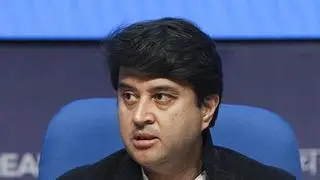Retained as Commerce and Industry Minister in the Modi 3.0 government, Piyush Goyal has his task cut out with multiple free trade agreements (FTAs) under negotiations, exporters seeking assistance to achieve the $2-trillion goods and services export target for 2030 and Western nations, especially the EU, coming up with new environment-related restrictions such as the Carbon Border Adjustment Mechanism (CBAM) and the Deforestation Regulation.
Other issues that would need attention, perhaps as part of the 100-day agenda, include the long-pending SEZ Amendment Bill to give added flexibility to units, notification of a balanced e-commerce policy, development of e-commerce hubs to promote online exports, and launch of initiatives such as the ‘Trade Connect e-Platform’ to handhold exporters. Review of the FDI policy in sectors such as banking, insurance and defence may also be on the agenda.
Core values continue
With Goyal familiar with the issues and the players, both locally and internationally, policy continuity in trade and investment is likely. However, greater care is needed in decisions affecting areas like agriculture and employment, as the sensitivities of the coalition partners in the NDA alliance have to be factored in.
The FTAs that are under negotiation include the India-Oman FTA, which was ready to be signed but for the election model code of conduct setting in.
While the proposed India-UK FTA may take more time with the announcement of UK elections for next month, negotiations with the EU and Australia are expected to pick up pace. When asked whether there will a re-think and more consultations on the FTA negotiations that are underway to also take into consideration the views of the BJP allies, an official said that “continuity with change” was what the buzzword likely to be.
Also read
The Commerce and Industry Ministry was committed towards turning India into ‘Viksit Bharat’ (Developed India) by 2047, Goyal said in his interaction with the media after assuming office on Tuesday. BJP leader Jitin Prasada also took charge as Minister of State for Commerce & Industry. “The Minister met officials from the Ministry to discuss proposals framed by them under the 100-day agenda and plan for expedited implementation,” another official told businessline.
Fostering free trade
Goyal will also need to find ways to boost the export sector to achieve the stiff target of $1 trillion of goods export by 2030. A similar target has been fixed for services exports.
In FY24, goods exports declined 3.11 per cent to $437 billion with the continued slowdown in global demand due to multiple factors including the ongoing conflict in Ukraine and West Asia.
Exporters, however, are optimistic about this fiscal owing to an increase in queries from foreign buyers. They have submitted a charter of demands, including access to easier and cheaper credit (increase in interest subvention rates), increased allocation for the Market Access Initiative (MAI) scheme, higher rates under the RoDTEP scheme for input tax remission, substantial allocation under the District as Export Hub scheme, and the removal of inverted duties that make imports of final products cheaper than import of inputs.
Goyal will need to weigh which of the demands can be met and how to prioritise them.
Green laws
Two of the EU’s regulations linked to environmental preservation need serious attention as they can impact exports. The EU’s Deforestation Regulation, which kicks in as early as December 30, 2024, is likely to affect Indian export of meat products, leather, chocolate, coffee, palm nuts, palm oil derivatives, glycerol, natural rubber products, soyabeans, soyabean flour and oil, fuel wood, wood products, pulp and paper, and printed books, as per industry analysis.
The regulation requires the items to be ‘deforestation-free’, namely not linked to recent (post December 31, 2020) deforestation, forest degradation, or breaches of local environmental and social laws.
The second such legislation is the CBAM, under which the EU can impose a carbon tax on certain carbon-intensive imports including cement, iron and steel, aluminium, fertilizers, electricity, and hydrogen products, if emissions exceed certain levels.
The US, too, is contemplating a carbon tax, which could impact Indian exports.









Comments
Comments have to be in English, and in full sentences. They cannot be abusive or personal. Please abide by our community guidelines for posting your comments.
We have migrated to a new commenting platform. If you are already a registered user of TheHindu Businessline and logged in, you may continue to engage with our articles. If you do not have an account please register and login to post comments. Users can access their older comments by logging into their accounts on Vuukle.